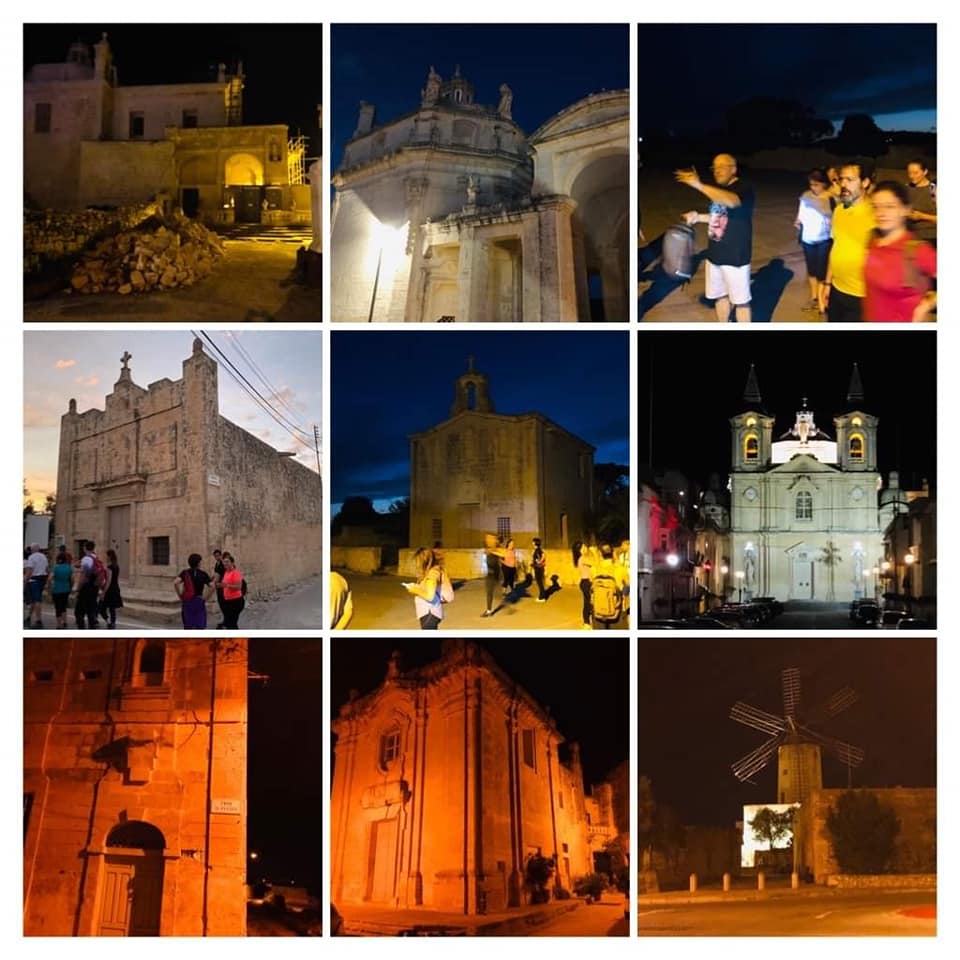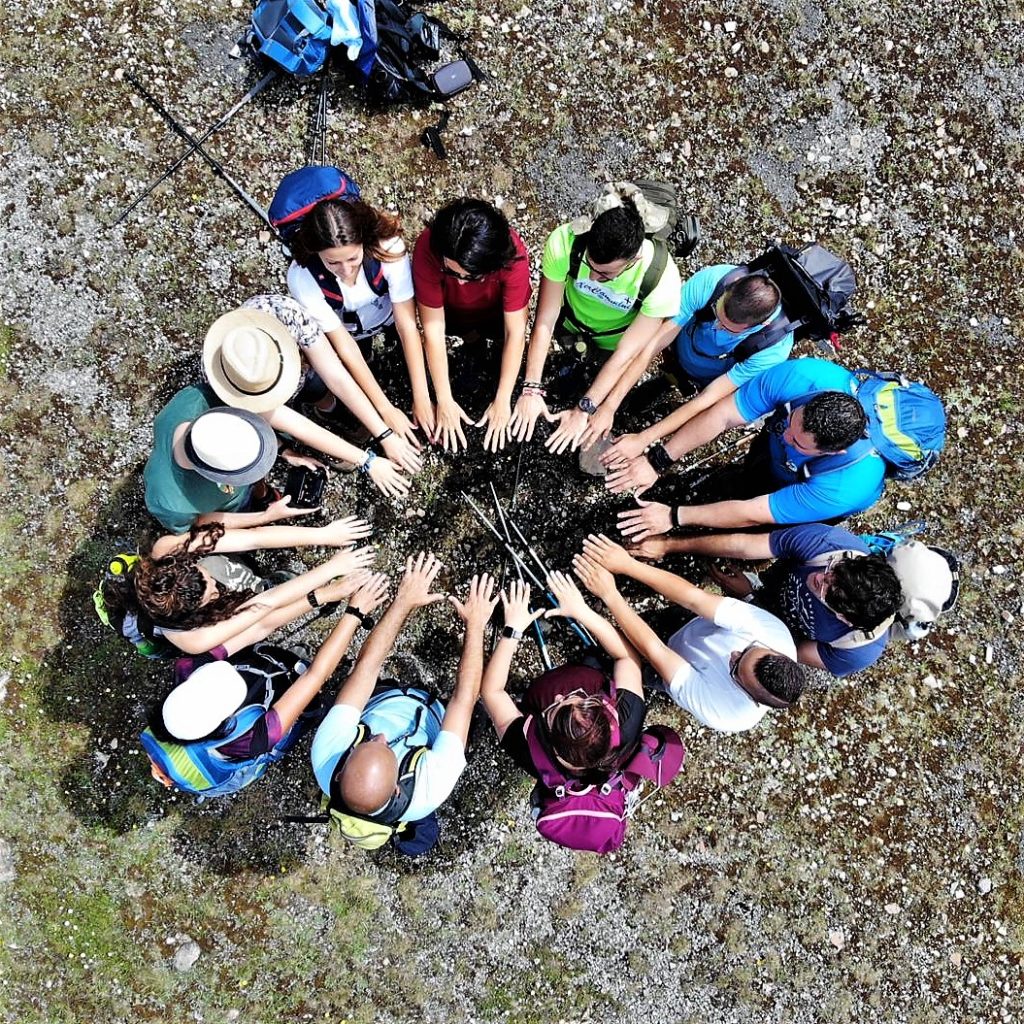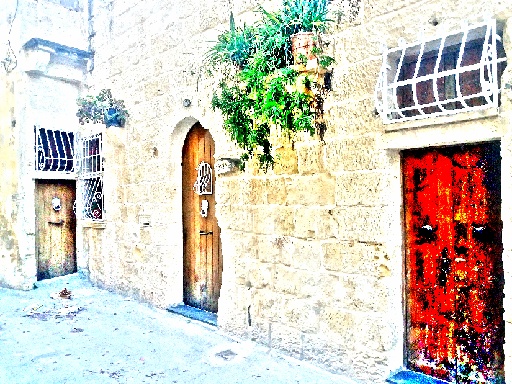Introduction
A fortnight ago, we reluctantly communicated the decision that we would be stopping the weekly ‘Wed Walks’ (https://xircammini.org/covid-19/covid-19-keep-calm-carry-on-in-smaller-groups/). We took the decision with a heavy heart because Wed Walks had started to gain momentum attracting between 50 to 100 walkers each week. As a result of various calls to re-consider, and with the assistance of various persons that stepped up to the plate to lead smaller groups, XirCammini has put in place a calendar and itinerary of walks that rotate per cluster group.

Cluster Groups: How will it work?
Last week we re-communicated through our website and on social media (https://xircammini.org/covid-19/wed-walks-with-your-help-we-can-carry-on/) that Wed Walks will continue, albeit in a different format, i.e. in groups of 10 on a rotating itinerary of walks. This means that several walks in various parts of Malta will take place each Wednesday evening with group sizes bring curtailed at 10 per group. Persons participating in these groups are persons who answered our poll and/or concurrently interacted with us at the time. Groups and itineraries are now fixed until the end of September when the scheme will be re-evaluated in the light of Covid-19 developments. By now, all persons who interacted with us in this respect would have been allotted an FB Chat group informing them of the leader and fellow group members and of the first walk. We ask for your understanding not to request changes because (a.) putting the whole plan into place was a significant endeavour and (b.) volunteers (who otherwise also have full-time jobs and personal responsibilities) undertake all the work on a voluntary basis by sacrificing personal time.
Thank you.

Risk Management Considerations
Some have asked, “Why all the work (and fuss) when outside events have a 300-person limit?”
If we had to provide one succinct answer to the above question, it would be, “To reduce the probability of spread and to lessen potential consequences in the event of Covid contagion.”
What does this mean?
- If you are in a group of 10 persons that does not change from one week to the next, the probability of coming into contact with an infected and/or asymptomatic person is much less than if you are walking with a group of 50 or more people that change each week.
- Similarly, if you an asymptomatic carrier the possibility of transmission is to a smaller group of people instead of the whole group. This also significantly reduces the burden on contract tracing and swabbing for the health authorities.
Why have we continued with the walks?
The short reply would be because of an overwhelming response to do so notwithstanding the circumstances.
The underlying response is that – even under normal circumstances – several people are benefitting whether physically, psychologically, emotionally or spiritually when participating in these Wed Walks.
Covid-19 has heightened some of the fears, concerns, anxiety, stress and loneliness and in some cases increased real or perceived isolation. Within this context, these walks have become even more relevant for our well-being.
This being stated, they had to be ‘re-engineered’ to respect the realities we are living in and the directives from health and government authorities in this respect.

Health Directives: Our 10 Commandments.
By participating in these walks, walkers bind themselves to the following directives. Help us to continue providing you with walks:
- DO NOT join a walk if you are sick, running a temperature, have a cough, or experiencing trouble to breathe;
- DO NOT join a walk if you or persons close to you have recently (i.e. during the last fortnight) returned from overseas from a country with whom there isn’t an established ‘safe-corridor’;
- When we meet AVOID ANY FORM of physical contact with others (i.e. shaking hands, hugging, kissing etc.) and try to maintain a 2-metre physical distance;
- AVOID touching eyes, nose, or mouth with unwashed hands. Carry and use alcohol-based hand sanitizers, tissues, and other hygiene products constantly on a trek. Please also dispose of these responsibly;
- USE soap and water if hands are visibly dirty;
- COVER your mouth and nose with a tissue or your sleeve (not your hands) when coughing or sneezing;
- DO NOT UNDER ANY CIRCUMSTANCES invite others to join your cluster for the weekly Wed Walk. Cluster leaders have instructions to turn away anyone who is not pre-registered in the respective cluster.
- GIVE your leader a telephone number on which you can be contacted in case these are required (a.) for further announcements by your leader and/or (b.) for us to share with Health Authorities if asked e.g. for contact tracing.
- By participating in your cluster you are CONSENTING to providing your telephone contact number and to us sharing it with health authorities if required.
- You also agree that you are participating freely in such walks and freely assume any risks arising from such walks. You hold XirCammini harmless and free from any liability for any accident, illness, injury, loss or direct or indirect consequences of such accident, illness, injury or loss.
Conclusion: A Word of Thanks.
I want to thank the Committee members who participated in the discussions and assisted in bringing this plan to fruition and also to the persons who kindly offered to lead cluster groups. These walks would not have been possible without their assistance. In choosing leaders, XirCammini:
- Decided the overall direction, encouraging a change in thinking;
- Empowered people and will continue to support them to achieve;
- Provided an overall framework for effective implementation and leader guidance, aligning clusters and facilitating ‘cluster’ decisions;
- Created a system that is flexible to respond to changes and improvements.
In other words, this was and will continue to be an exercise of leadership in action.
A lot of thought, planning and execution went into the process. The success of these walks now hinges on response and cooperation of walkers in each group, the ultimate beneficiaries.

